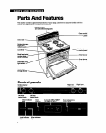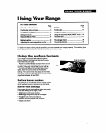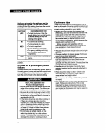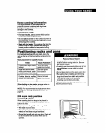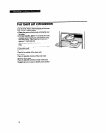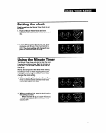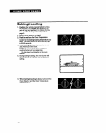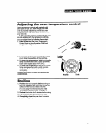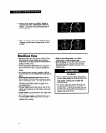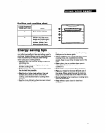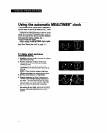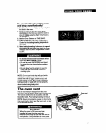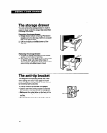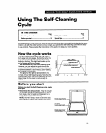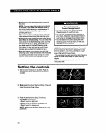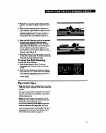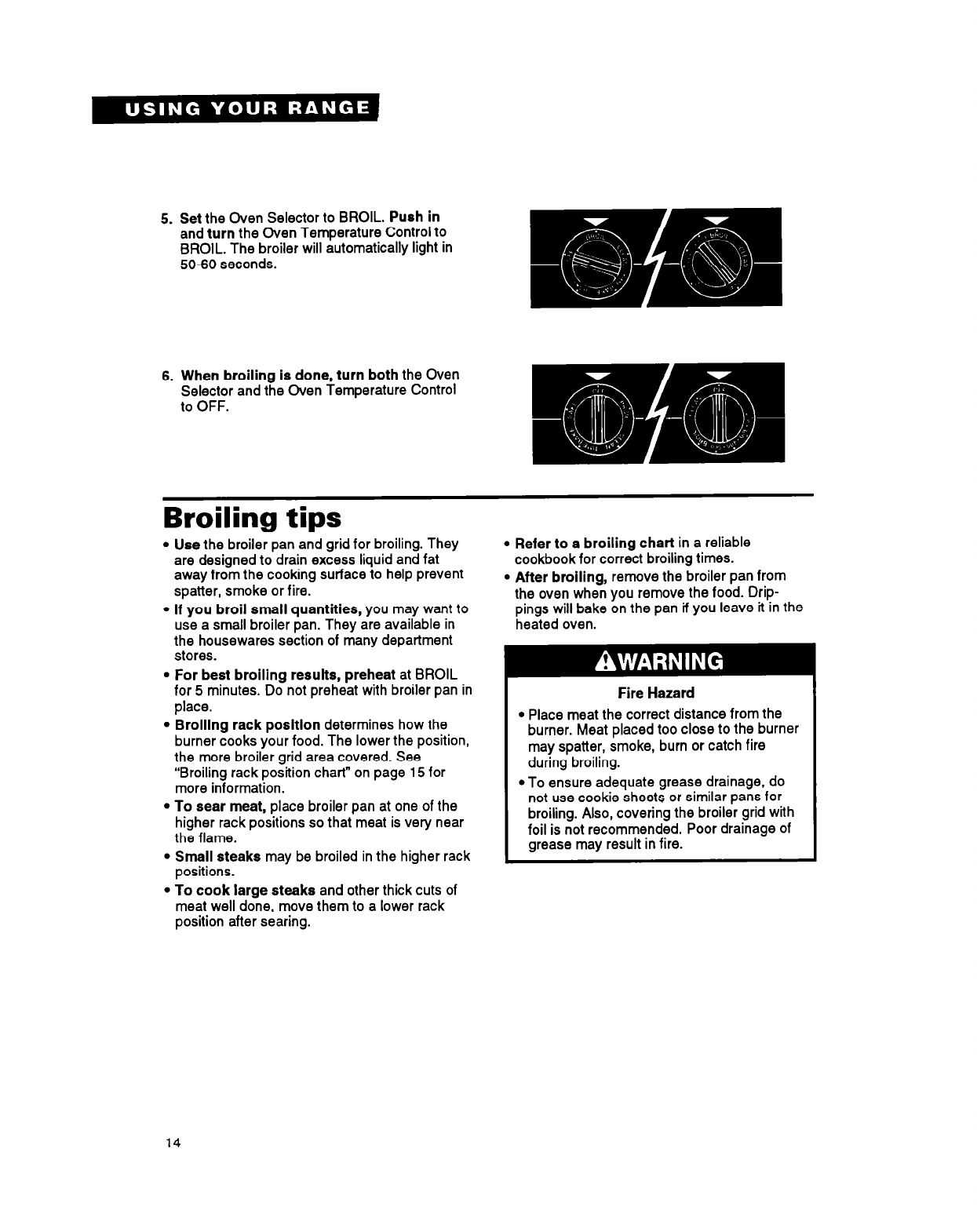
5. Set the Oven Selector to BROIL. Push in
and turn the Oven Temperature Control to
BROIL. The broiler will automatically light in
50-60 seconds.
6. When broiling is done, turn both the Oven
Selector and the Oven Temperature Control
to OFF.
Broiling tips
l
Use the broiler pan and grid for broiling. They
are designed to drain excess liquid and fat
away from the cooking surface to help prevent
spatter, smoke or fire.
l
If you broil small quantities, you may want to
use a small broiler pan. They are available in
the housewares section of many department
stores.
l
For best broiling results, preheat at BROIL
for 5 minutes. Do not preheat with broiler pan in
place.
l
Broiling rack position determines how the
burner cooks your food. The lower the position,
the more broiler grid area covered. See
“Broiling rack position chart” on page 15 for
more information.
l
To sear meat, place broiler pan at one of the
higher rack positions so that meat is very near
the flame.
l
Small steaks may be broiled in the higher rack
positions.
l
To cook large steaks and other thick cuts of
meat well done, move them to a lower rack
position after searing.
l
Refer to a broiling chart in a reliable
cookbook for correct broiling times.
l
After broiling, remove the broiler pan from
the oven when you remove the food. Drip-
pings will bake on the pan if you leave it in the
heated oven.
I
Fire Hazard
l
Place meat the correct distance from the
burner. Meat placed too close to the burner
may spatter, smoke, burn or catch fire
during broiling.
l
To ensure adequate grease drainage, do
not use cookie sheets or similar pans for
broiling. Also, covering the broiler grid with
foil is not recommended. Poor drainage of
grease may result in fire.
14



